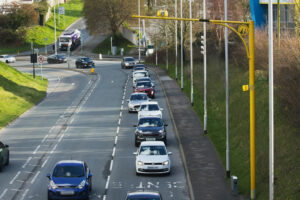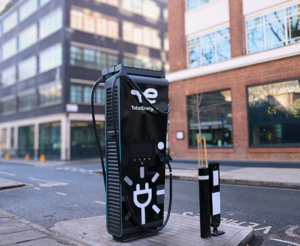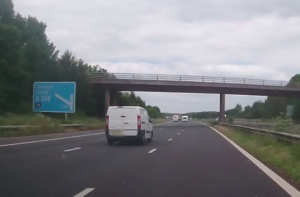Finding out how autonomous vehicles interact with existing road infrastructure will be tested later this year in the West Midlands as part of the Midlands Future Mobility project which has now started.
Approximately 188 miles of roads will form the planned routes for the testing, which includes inner-city, suburban and rural roads from Coventry to Birmingham to study how the vehicles perform in different environments on the road network.
The Midlands Future Mobility project is run by a consortium of companies including Warwick Manufacturing Group (WMG), MIRA, Transport for West Midlands (TfWM), Costain, Amey, Wireless Infrastructure Group, Vodafone, Coventry University and Highways England.
New technology, such as CCTV and communications units, are also being installed for the purposes of the trial, with connected vehicles will be the first to be tested.
The vehicles in the early stage of research will have a driver and occasionally a second person in the vehicle to monitor and operate the cars. Midlands Future Mobility states that the testing will be ‘as safe if not safer than current vehicles on the road’. CAVs with fully autonomous technology will be tested on the route in the future, though these will also be closely monitored by operators in the car.
The planned route will also cause no disruption to local traffic or homes as it uses existing road infrastructure. It will later be expanded to include motorways, while increasing in length.
John Fox, project director at Midlands Future Mobility, said: “It is great to see that work has begun in making roads a more connected place, where drivers can make their journeys more safely and where goods can be delivered more efficiently.
“The West Midlands has a rich history of the automotive industry, and to see it is now progressing into Autonomous vehicles feels somewhat momentous.”
As part of the project, Costain has started to install smart infrastructure on the test route. The route has been developed by TfWM in collaboration with Coventry City Council, Birmingham City Council and Solihull Council and takes in key interchanges such as Birmingham International Airport and the new HS2 Hub in the City
The Costain technology team are practicing social distancing as they provide smart infrastructure solutions, including smart CCTV, a Human Machine Interface (HMI) for vehicles and video analytics.
John Batterbee, technology solutions director, said: “We are excited about how our ambitious work together with our market leading partners in the Midlands is enabling safer, cleaner and faster journeys. Today is a key milestone in starting to deploy the advanced infrastructure technologies we have developed over the last couple of years. The cameras and video analytics we are deploying will, for example, save lives by enabling drivers to be alerted to hazards beyond the line of sight.
“Our contribution to this project also delivers on our Climate Change Action Plan and our commitment to be a clean growth leader by enabling the uptake of low carbon solutions such as connected and autonomous mobility,” he added.
























